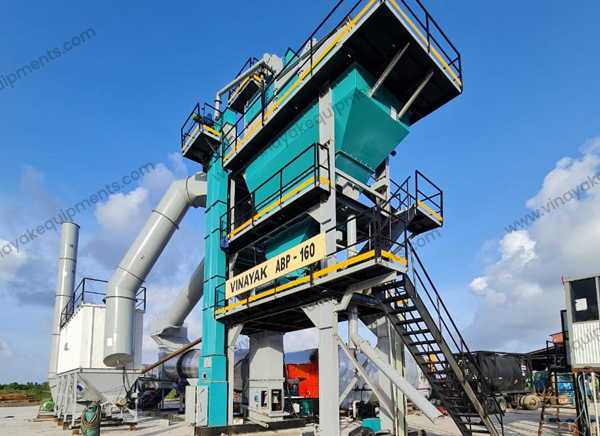Asphalt Batch Mix Plant vs Drum Mix Plant | Which is Right for Your Project?
Among road construction machines, the selection of the type of asphalt plant is one of the most essential decisions. Asphalt plants are the backbone of modern road projects, providing high-quality asphalt for highways, city roads, airport runways, and other infrastructure. Some of the most commonly used types are the Asphalt Batch Mix Plant and the Asphalt Drum Mix Plant.
But which one is right for your project? Let’s break it down.

What is a Asphalt Batch Mix Plant?
The Asphalt Batch Mix Plant is essentially designed to produce mixed asphalt in batches, thus allowing for complete control over every mixing cycle.
- Asphalt is produced in batches (each cycle lasts 40–50 seconds)
- Low emission and high efficiency of the plant
- The plant is capable of using different asphalt grades and customized recipes as well
- The plant includes a screening system to separate the aggregates
- The plant is equipped with pollution control systems to safeguard the environment
- Highways and expressways.
- Airport runways.
- LARGE-SCALE road projects are supported by tightly controlled
- project requirements/standards.
- Projects requiring a variety of different asphalt mix designs.
What is a Asphalt Drum Mix Plant?
A Asphalt Drum Mix Plant (also known as a continuous mix plant) is basically a plant that can make the product without stopping to replenish the material.
- The production is continuous without batching cycles
- Comparatively, the batch plants have slower production.
- The plant is of a simple and neat design, and the initial investment required is quite low.
- Reducing the cost of operations and the need for maintenance
- In most cases, they are also portable and thus simpler to move from one place to another
- Construction of rural and urban roads
- Projects of medium size and that are less complicated
- Regions where quicker and cheaper asphalt production is needed
| Details | Batch Mix Plant | Drum Mix Plant |
| Production Method | Asphalt produced in batches | Continuous asphalt production |
| Output Quality | High precision, uniform, customizable mixes | Decent quality, but less flexibility |
| Cost | Higher initial investment | More cost-effective for small projects |
| Mobility | Generally stationary, but mobile options exist | Easier to relocate |
| Applications | Highways, airports, expressways | Small to medium-scale road projects |
| Mixing Flexibility | Can produce different mix designs in one project | Limited flexibility |
Pros & Cons of Each Type of Asphalt Plant
Asphalt Batch Mix Plant – Advantages
- Superior quality and precision
- Flexibility in mix designs
- Ideal for projects with strict specifications
- Advanced pollution control options
Asphalt Batch Mix Plant – Disadvantages
- More expensive to set up
- More space and more maintenance are required
Asphalt Drum Mix Plant – Advantages
- Lower initial investment
- Continuous and fast production
- Easy to install and move
- Lower operating costs
Asphalt Drum Mix Plant – Disadvantages
- Less flexibility in mix designs
- Asphalt quality can fluctuate as the project becomes large and complex
Which Plant should you use in Your Project?
Highways, airports, and mega infrastructure → The flexible combination of high quality makes a Batch Mix Plant the right solution.
Urban infrastructure, country initiatives, medium to small-sized jobs → A Drum Mix Plant is cost-effective and portable.
In case your project requires varying grades of asphalt, strict specifications, or the integration of RAP (Reclaimed Asphalt Pavement), then opt to use an Asphalt Batch Mix Plant.
Speed, low cost, and simplicity, other than the quality, are your concerns; then a Drum Mix Plant is the option.
Making the Right Decision
Both Asphalt Batch Mix Plants and Asphalt Drum Mix Plants are essential in road construction. The choice is yours depending on the project requirements, your budget, and quality standards. An Asphalt Batch Mix Plant is the solution that promises to produce the best asphalt mix for large projects with high specifications. While for smaller, money and time and time-sensitive works, a Drum Mix Plant appears as the most feasible option.
By studying these distinctions, you can make a wise decision and ensure a successful, sustainable, and cost-effective road construction.

